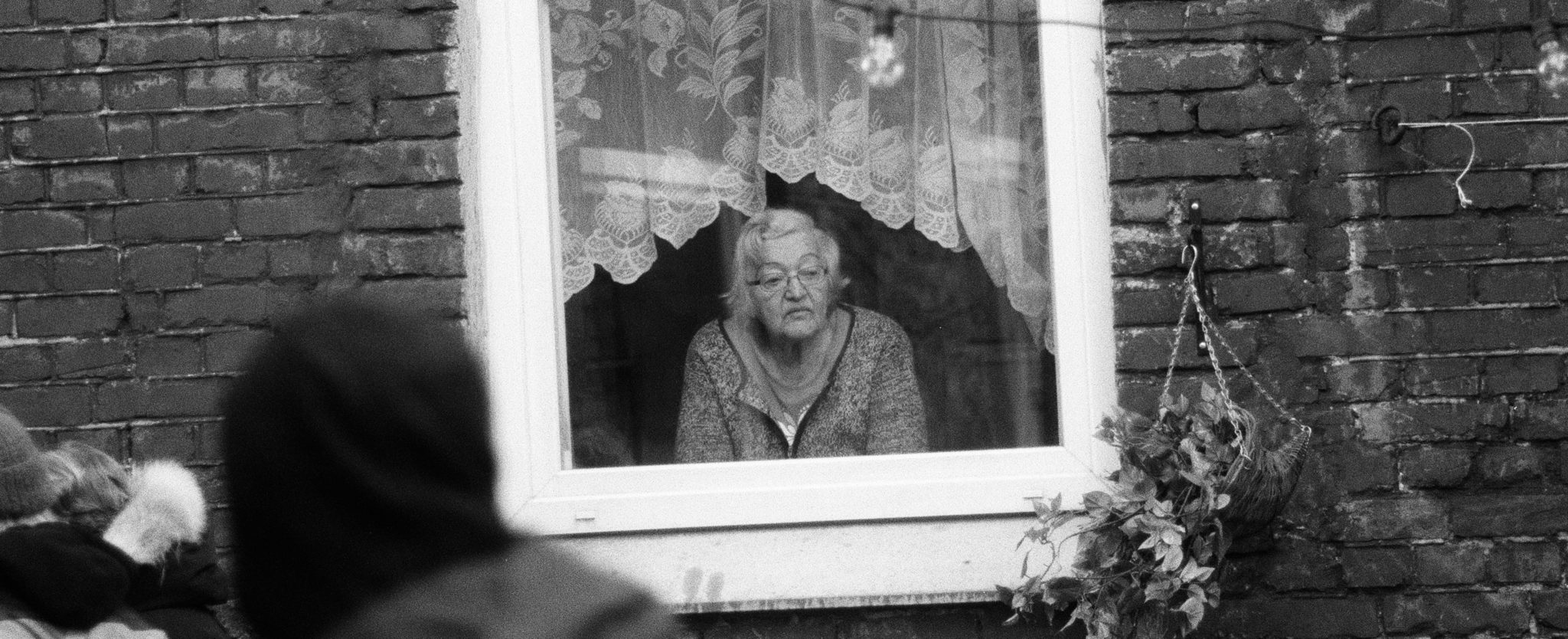A story about my dead husband begins “I remember” or “remember how”: “Remember how Robb stapled yellow-highlighted Xeroxes of restaurant listings for every driving trip, and we’d eat six different barbecues in one day, and he knew whether we should order chopped or ribs and if the hush puppies were famous, and how he’d go, ‘Pecan pie here is worth belly space.’”
I want people to laugh at these stories, to nod in recognition. I’m practiced and tell the stories effectively. I quote dialogue for humor, insert conversational asides, arrange the phrasing and patter and pauses just so: “There we were, in that broken-down Chrysler with the duct tape holding up the back window, careening around New Haven because he just haaaaad to go to Frank Pepe, this legendary, coal-burning oven pizza place from the 1920s, and we’re totally lost—this is before GPS, before cellphones—and I’m carsick from squinting at a tiny corner of a giant altas map, and outside is pitch black. We’re running out of gas, and he’s shouting, ‘Where’d you learn to read a map?,’ and I’m going, ‘You navigate if you’re so smart….’” On the story goes, as I hit the punchlines and each detail, now embellished and burnished. This story, all these stories, have been repeated so many times, told to so many different people that the words are to me a fairy tale or a legend. Nothing about this story feels true.
I stick the ending: “…but that clam pizza was the best we ever had, worth nearly getting divorced for.” My audience at the party or bar or around the table is snort-laughing, everyone believing they know something about Robb, even if—especially if—they never met him. I tell stories about my first husband that my second husband could recite exactly as I do, word for word, inflection by inflection.
This is how the dead finally die, by being transformed into the stories we tell. Possibly this is how we all die. As a writer, I want to resist this conclusion: aren’t stories and memories how we live? Don’t Romeo and Juliet exist forever thanks to Shakespeare? Shouldn’t stories keep our dead close?
I understand that we don’t (or can’t) (or shouldn’t) meander through our daily lives as oozing, gaping wounds, sobbing out our tragic losses to drugstore clerks and Uber drivers. But as the immediacy of grief subsides, a new form of story arises, clinical renderings of the loved one, a practiced tale of a fond memory transformed into narrative or, worse, reduced to words doled out at a certain point of conversation or when questions tug toward this answer: “My first husband died when he was 37 and I was 35.” I always get the murmur: “I’m so sorry.” Maybe there’s a quizzical head tilt, as the listener tries to figure how long ago this was, how old I am; or narrowed eyes show a desire to suss out details, but I’m silent. Eventually, our conversation continues, neatly leaping over this uncomfortable bit of information wedged between us. Sometimes I’m more forgiving and mention that Robb died in 1997 and let them do the math they care about.
My silence isn’t anger or distress or anything really, because after I’ve spoken that simple fact, my mind is elsewhere. I’m braced for that awkward, “I’m so sorry,” but at this moment of what might be considered emotional revelation, I’m not thinking about Robb or that time in my life when I was a young widow or any of the thousand-million memories of my long-ago life with him. That single sentence is now the story of what happened to me once upon a time, in a galaxy far, far away, a shortcut to quickly convey one fact that suggests an iceberg of experience. Those words are the well-worn path of how I explain the single most traumatic event in my life thus far, differing from the well-rehearsed story only in length.
Stories are tidy, with beginning, middle, and end. A story imposes order. There might be a lesson to a story. Memory is a mess, is disarray; think back over a loved one’s life (or your own) and you face a hoarder’s haul of material. In memory, the precise way someone looped together the shoelaces of his scuffy work boots are on equal footing with the marriage proposal in your parents’ basement on Christmas Eve because a life is chaos. We can’t hold our own lives in our minds. Dare we presume to understand another human’s life?
In the end, we’re forced to reduce the sloppy lives of the dead into stories. This thin gruel is what remains, and we persuade ourselves it’s a feast. You’ll always have those beautiful memories, are words I’ve heard countless times, with angry stabs piercing my gut at each cheerfully oblivious utterance. The man is gone forever, the memories ease into stories, and the stories are repeated even after we stop listening to ourselves tell them. “My husband died when he was 37 and I was 35.” Isn’t that a sentence to break a heart?
I have a confession: I intended to use another memory of Robb in this essay, not the pizza story, not the bit about the barbecue restaurants. I had a specific incident in mind that would read as beautiful and quirky, a story appealing to readers and editors. My dead husband draws close—at first—as I sketch the details, find exact words, compose elegant sentences, remember him, remember this particular day. It’s a memory I’ve never written about, something not in my collection of short fiction about my life as a young widow, a memory I never tell for laughs or for sympathy or to fill an awkward silence. It’s not anywhere except right here inside my head—where maybe I imagine I’m keeping it safe.
Leslie Pietrzyk
Leslie Pietrzyk is the author of the novel Silver Girl, released in 2018 by Unnamed Press, and called “profound, mesmerizing, and disturbing” in a Publishers Weekly starred review. In November 2021, Unnamed Press published Admit This to No One, a collection of stories set in Washington, DC, which The Washington Post called “a tour de force from a gifted writer.”



 These are FARMED, Grandpa,
These are FARMED, Grandpa, She loves how the night sky
She loves how the night sky